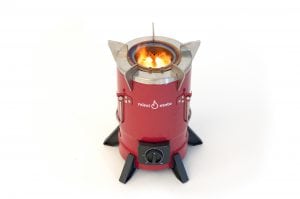
Agriculture
November 30, 2024
Mimi Moto
Read SolutionImplemented by
Mimi Moto
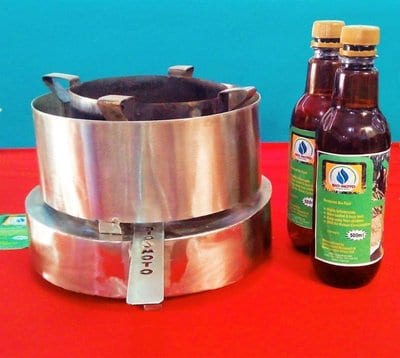
Updated on November 12, 2024
·Created on August 29, 2019
The Bio Moto is a spirit-based biofuel cookstove with variable power and five different burner configurations.
The Bio Moto cookstove is a five-staged variable power cook stove manufactured locally in Kenya that uses biofuel made from post harvest starch crops (such as stalks and damaged produce). It is available in 1, 2, 4, 6 and 8 burner configurations, with a spill-proof fuel tank. It is manufactured by International Research and Development Africa Ltd and has been approved for sale by the Kenyan government.
Target SDGs
SDG 7: Affordable and Clean Energy
SDG 3: Good Health and Well-Being
Market Suggested Retail Price
$48.00
Target Users (Target Impact Group)
Household, Community
Distributors / Implementing Organizations
The product is manufactured by International Research and Development Africa Ltd and available through existing last-mile energy retailers.
Competitive Landscape
Direct competitors include Kenyan Domestic Ceramic Jiko Stove and Burn Jikokoa.
Countries
Kenya
Manufacturing/Building Method
The cookstove is produced by International Research & Development Africa Ltd and manufactured in Kenya from imported steel alloy rolls.
Intellectural Property Type
Patent
User Provision Model
The users can obtain this product from last-mile energy retailers in Kenya.
Distributions to Date Status
At least 116 Bio Moto cookstoves have been sold in Kenya.
Design Specifications
The Bio Moto is manufactured in five different burner configurations, specifically 1, 2, 4, 6, and 8, and the dimensions and weight of the product vary accordingly. It accommodates a maximum pot size of 20 L, and the single burner unit has the following dimensions: 240 x 240 x 180 mm and weighs 3.125 kg.
Technical Support
Provided by the manufacturer
Replacement Components
Unknown
Lifecycle
The product has a warranty of 15 years for manufacturer defects.
Manufacturer Specified Performance Parameters
The manufacturer's specified performance targets include: instant ignition, variable power control (0.8 - 4.0 kW) and smoke-free combustion.
Vetted Performance Status
A Water Boiling Test (WBT) and safety testing were conducted, with detailed testing results.
Safety
Potential safety hazards have been considered and graded by the University of Nairobi's Department of Chemistry, where it was awarded a rating of "Good", and scored 79.0 points.
Complementary Technical Systems
The biofuel produced by the same manufacturer can be used as a substitute for kerosene or ethanol spirits.
Academic Research and References
Vianello, M., 2016, A Review of Cooking Systems for Humanitarian Settings, Toolkit for the Moving Energy Initiative.
Anditi, C., 2018, Co-designing systems for sustainable energy technologies in informal settlement households in Nairobi a case study of Mathare Valley informal settlement, College of Architecture and Engineering (CAE).
Bar, R., Heinimann, A. and Ehrensperger, A., 2017, Assessing the potential supply of biomass cooking fuels in Kilimanjaro region using land use units and spatial Bayesian networks, Energy for Sustainable Development, 40, pp 112-125.
Compliance with regulations
None
Evaluation methods
The product has been tested against the IWA 11: Guidelines for evaluating cookstove performance.
Other Information
The product has a video made by the designer

Agriculture
November 30, 2024
Implemented by
Mimi Moto
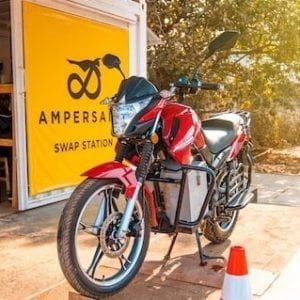
Agriculture
June 22, 2024
Implemented by
Ampersand

Agriculture
January 2, 2024
Implemented by
Norweco
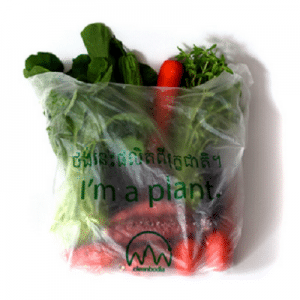
Agriculture
January 11, 2024
Implemented by
Cleanbodia

Agriculture
August 13, 2024
Implemented by
R.K. Technologies
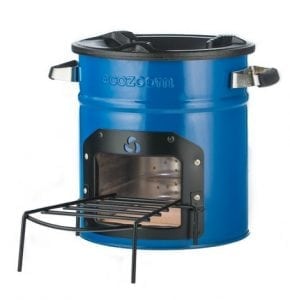
Agriculture
December 2, 2024
Implemented by
BioLite
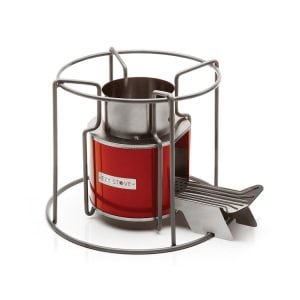
Agriculture
December 3, 2024
Implemented by
Veryday (McKinsey Design)
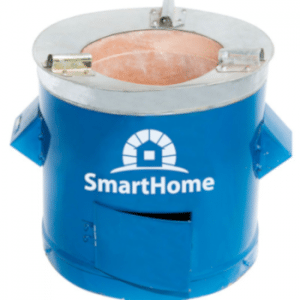
Agriculture
December 27, 2023
Implemented by
Green Bio Energy

Agriculture
December 27, 2023
Implemented by
Helps International

Agriculture
December 10, 2024
Implemented by
Renewit
Have thoughts on how we can improve?
Give Us Feedback